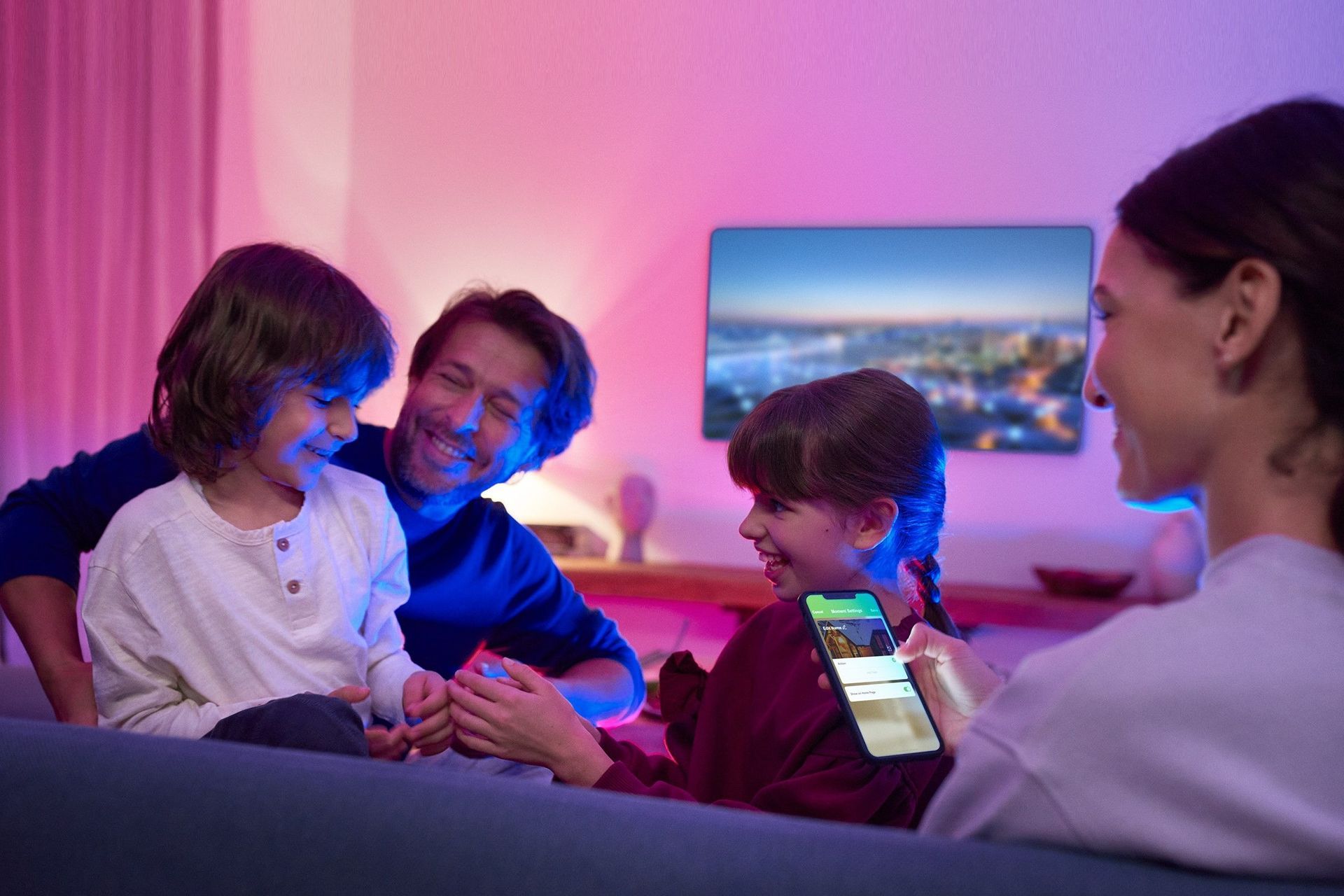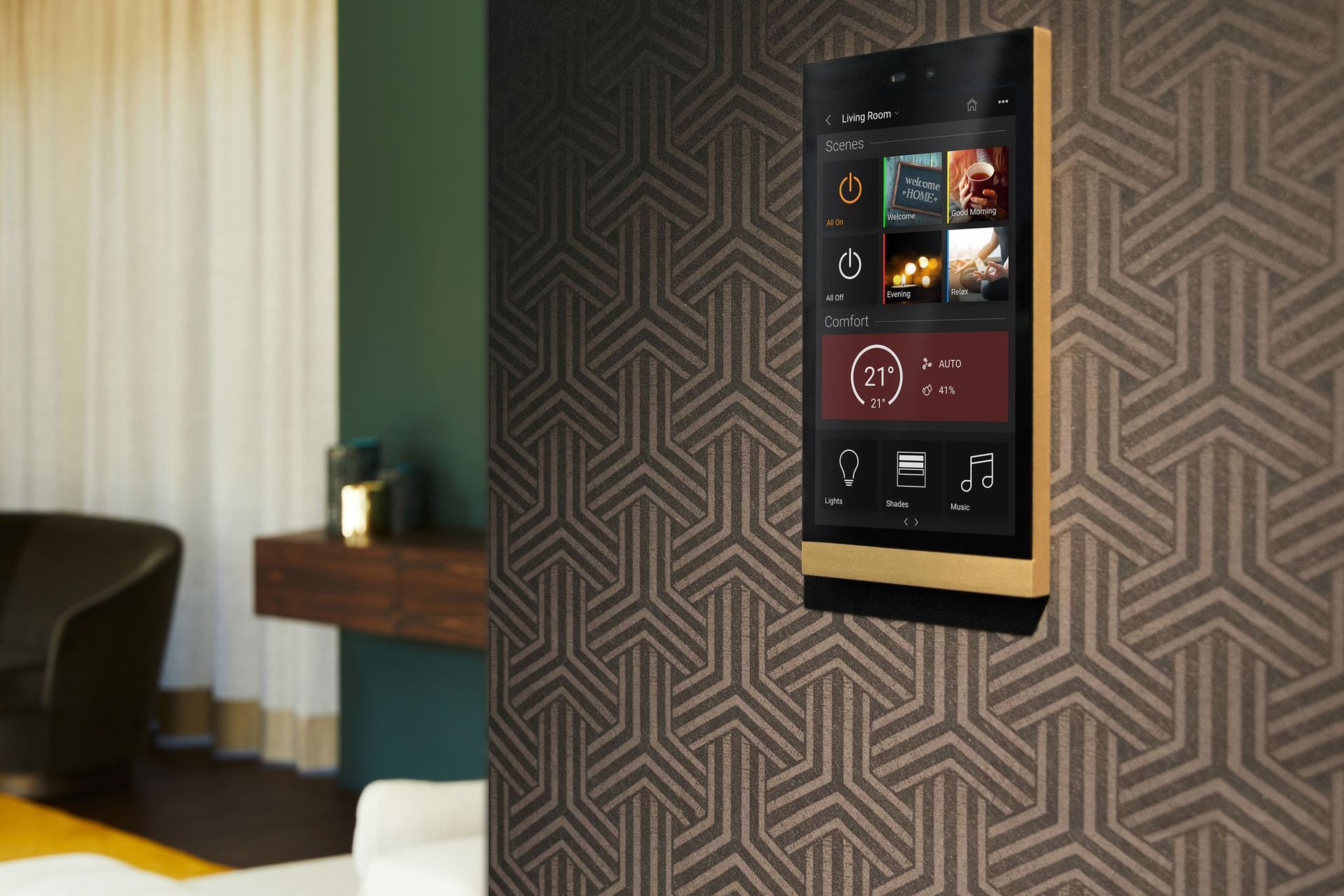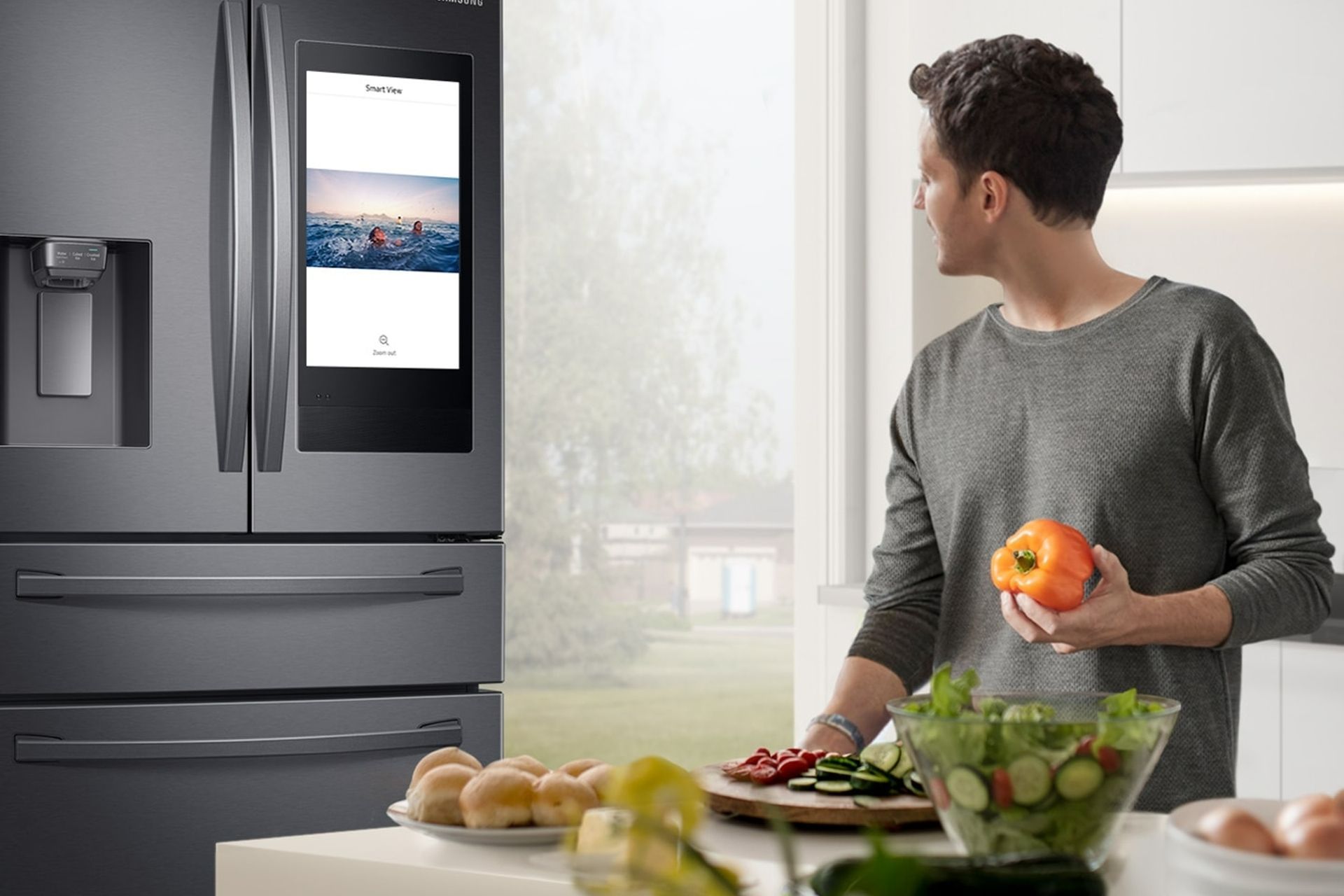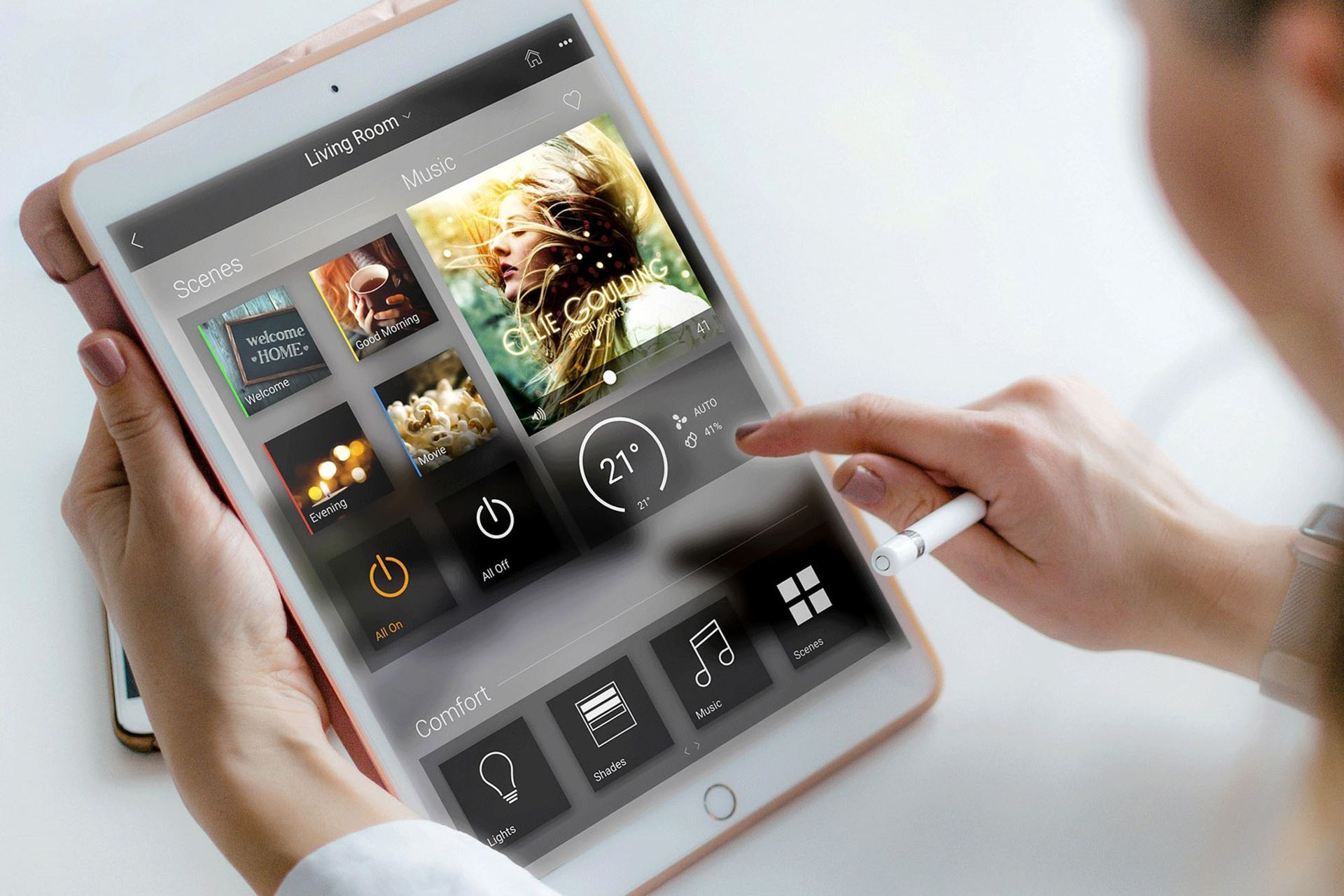Pioneering smart home trends to watch out for in 2025
Written by
25 September 2023
•
8 min read
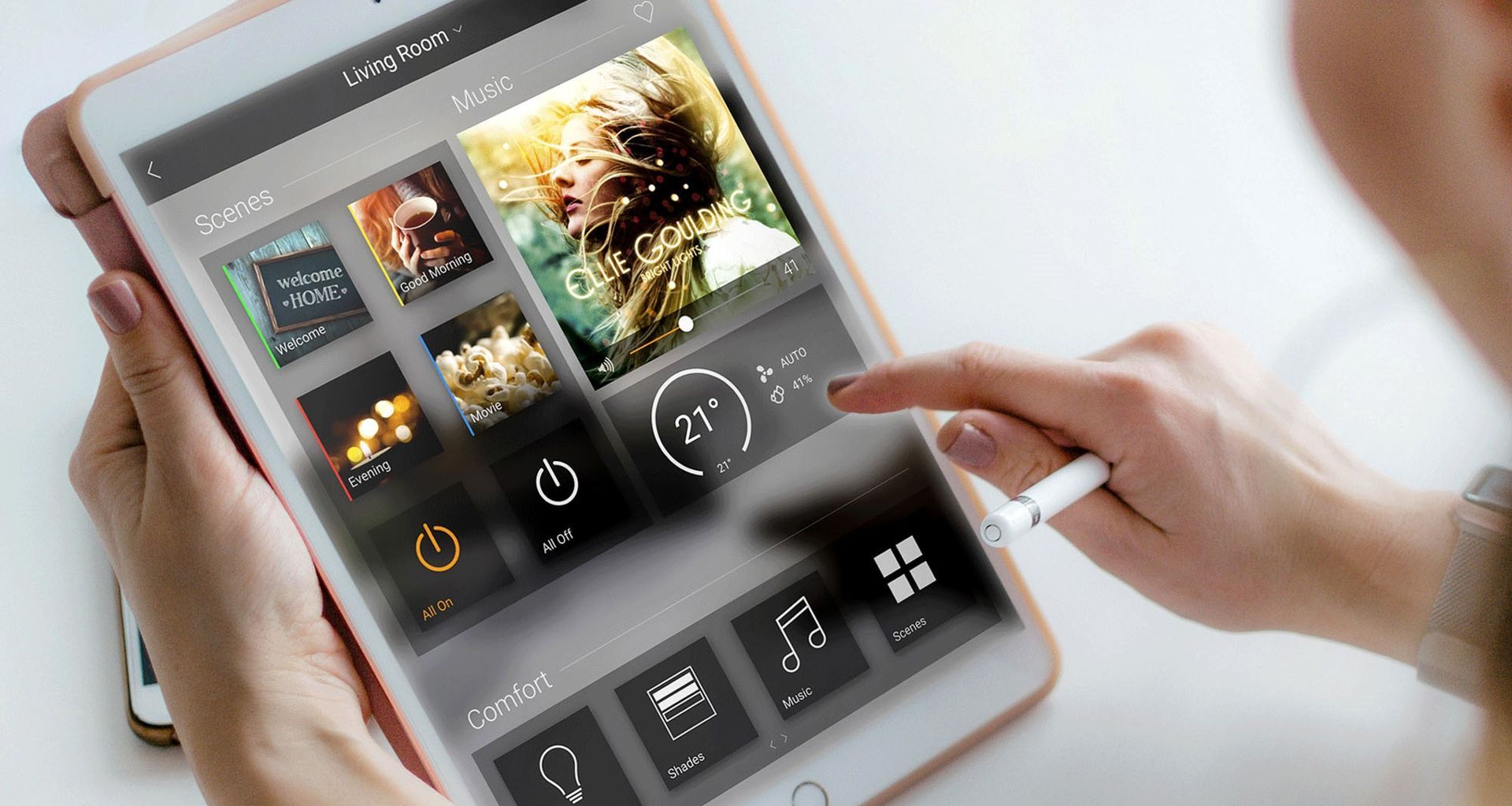
Smart home technology has come a long way in a short space of time thanks to the rapid advancements of artificial intelligence and its integration into smart home devices. The innovations that have emerged from this have been nothing short of stunning which makes the discussion of smart home technology trends all the more invigorating.
1. Increasing influence of AI and machine learning
The growth of ChatGPT and other artificial intelligence platforms has been the big tech story of the last 12-18 months and it'll also have increasing influence in our living spaces through our smart home devices. These devices are now being developed with AI and machine learning capabilities at their core, facilitating better automation and predictive functionality. This will allow devices to learn from the patterns and preferences of the occupants in the home to deliver a better and more customised experience.
2. Emergence of edge computing
Edge computing, in the context of home automation, is a system that allows data to be processed at the device level instead of via a network on a cloud or centralised data centre. This makes systems less susceptible to latency issues meaning faster response times as well as improved privacy and security. It also reduces pressure on your home network's bandwidth, particularly important for busy households. If your internet happens to go down for any particular reason, your smart devices with edge computing won't be impacted, giving you uninterrupted service.
3. Expansion of 5G technology
With the continued expansion of 5G networks across New Zealand, the positive impact on smart home technology will be profound. 5G networks offer faster data speeds and lower latency than previous versions making smart devices more efficient and reliable. 5G networks allow more devices to be connected at any time, meaning better integration and connectivity. They will almost certainly be integrated into the latest Internet of Things (IoT) technologies and products, like augmented reality (AR) and virtual reality (VR), resulting in some fantastic innovations. 5G will be of particular benefit for those living in remote locations where fibre can't be connected and for those who often need to access their smart home products from remote locations.
4. Improved voice control and natural language processing
As far as smart home technology trends go, the ongoing evolution and improvement in voice control, voice recognition and natural language processing will continue to astound. The advancements will happen on a number of fronts including the voice assistants' (like Google Assistant) better understanding of context, intent and semantics. Voice recognition will get more precise thanks to improved smart speakers, accounting for individual accents and speech patterns. AI will also power predictive responses, providing answers before being asked in some instances. The ability to naturally converse with our smart home devices, allowing for hands-free control, will enable us to effectively do so much more with our time and make for its smoother transition into our daily habits and lives.
5. Better energy efficiency and sustainability
Many new technologies now centre their development and strategies around energy efficiency and sustainability and smart home technology is no different. Products have emerged, like smart thermostats and smart panels/switchboards with functionality that allows us to manage our energy consumption with great precision. Smart sensors and learning algorithms allow such devices to understand and analyse our environments, behaviours and preferences and make adjustments accordingly. Some also have access to local weather data making changes based on the conditions outside. These features, alongside other related products like smart plugs and window treatments, will make our homes much more sustainable and lower our household energy bills as well.
Related article: Popular bathoom heating options and how much they cost to run
6. Enhanced security systems
The innovations in smart technology will have very tangible benefits when it comes to smart home security systems. Advancements in facial recognition, voice recognition and motion detection are already progressing quickly and the integration and connectivity of these systems with smartphones and other smart devices will offer functionality from remote locations. Smart locks are also becoming more commonplace, activated with a variety of different interfaces including PIN codes, fingerprint recognition, voice recognition, apps and more. The use of new technologies like Blockchain will also become an integral part of security systems for smart homes, making them more robust and formidable against potential hackers.
7. Cooking convenience with smart kitchen appliances
Smart home technology trends are also found in places you might least expect them, like kitchen appliances, some of which already have incredible features. Smart refrigerators have interior cameras to help monitor your food stocks, ordering replacements from the supermarket when necessary. Smart ovens can be operated remotely and, in some cases, can suggest recipes and set cooking times. Smart rangehoods have air quality sensors and will adjust fan settings appropriately. Smart coffee makers can take voice commands to create your favourite brew. The list goes on and will continue to expand in unique and ingenious ways.
Related article: Must-have appliances to furnish a modern kitchen in New Zealand
8. Adaptive smart lighting systems
Smart lighting systems have already been adopted by many homeowners across New Zealand providing real benefits like energy efficiency and lower energy bills. Going forward, artificial intelligence will have a huge role to play in adaptive and predictive lighting, with algorithms analysing our user habits and behaviours, and setting lighting schemes that match the activity and task at hand. They will also take into account the current lighting conditions based on the time of day and weather, and make adjustments to suit. Voice recognition and perhaps even gesture control may also become the main mode of operation in 2024 as we move past traditional wall switches and dimmers.
Related article: The ultimate guide to LED lights
9. Easier household chores, cleaning and maintenance
Robotic vacuum cleaners have been around for a number of years now and already have some advanced features like being able to clean without human intervention and returning to charging and docking stations when done. These products will continue to evolve with more advanced features, likely working in conjunction with home automation systems like security and lighting to work better and more efficiently. Features in smart washing machines, dryers and dishwashers, many of which already boast remote control via smartphone apps, will also become more intuitive with AI, automatically operating in a coordinated way for easier household maintenance.
10. Prioritising of health and wellness
Health and wellness are rightly becoming more prominent in every aspect of our lives including how we live on a day-to-day basis at home. The smart home ecosystem will be key to this with integrated devices designed to monitor our wellness including sleep trackers, indoor air quality monitors and fitness equipment. These, as well as wearable health tech like smartwatches, will work closer with smart home systems to keep an eye on your physical well-being with real-time health updates and alerts. For improving wellness, they'll also be able to communicate with your lighting and HVAC systems to adjust your home environment based on your current well-being, culminating in a smart home that proactively looks after you.
11. Greater interoperability between products and ecosystems
One area of smart home technology that is already improving is interoperability i.e. the ability of products from different brands to work together under one ecosystem. With such a wide range of varying products needed for a fully functioning smart home (something which will only increase with time), no one brand or company is able to fully cover them all. A product's ability to adapt and integrate smoothly with other smart home devices will become not only a strong selling point but a necessity for continued, long-term use.
12. Total immersion with Augmented Reality (AR) and Virtual Reality (VR)
AR and VR are growing at a phenomenal rate, especially for gaming and entertainment. In the short term, this will no doubt still be the primary application of the technology but we'll soon also see it integrate into other aspects of home life. Health and wellbeing, as previously discussed, will be one area where this technology could be utilised using immersive environments for physical therapy or virtual meditative surroundings for mental wellness. Home security is another, where homeowners will be able to place themselves in their homes from remote locations using VR. Product visualisation, with respect to home decorating and purchasing other home products, will become another common feature, allowing you to see how things fit into your space before buying them.
Some exciting smart home technology trends to embrace in your home
As you can see, there are some amazing smart home trends to watch for in 2024 and beyond, utilising the latest innovations in artificial intelligence, machine learning and more. Whether it's to save energy with smart lights and heating systems or an immersive entertainment experience using AR and VR, smart home products will make our home lives easier, more enjoyable and more productive.
(This article was updated on 27th November 2024)
Explore the latest smart home systems and products on ArchiPro
